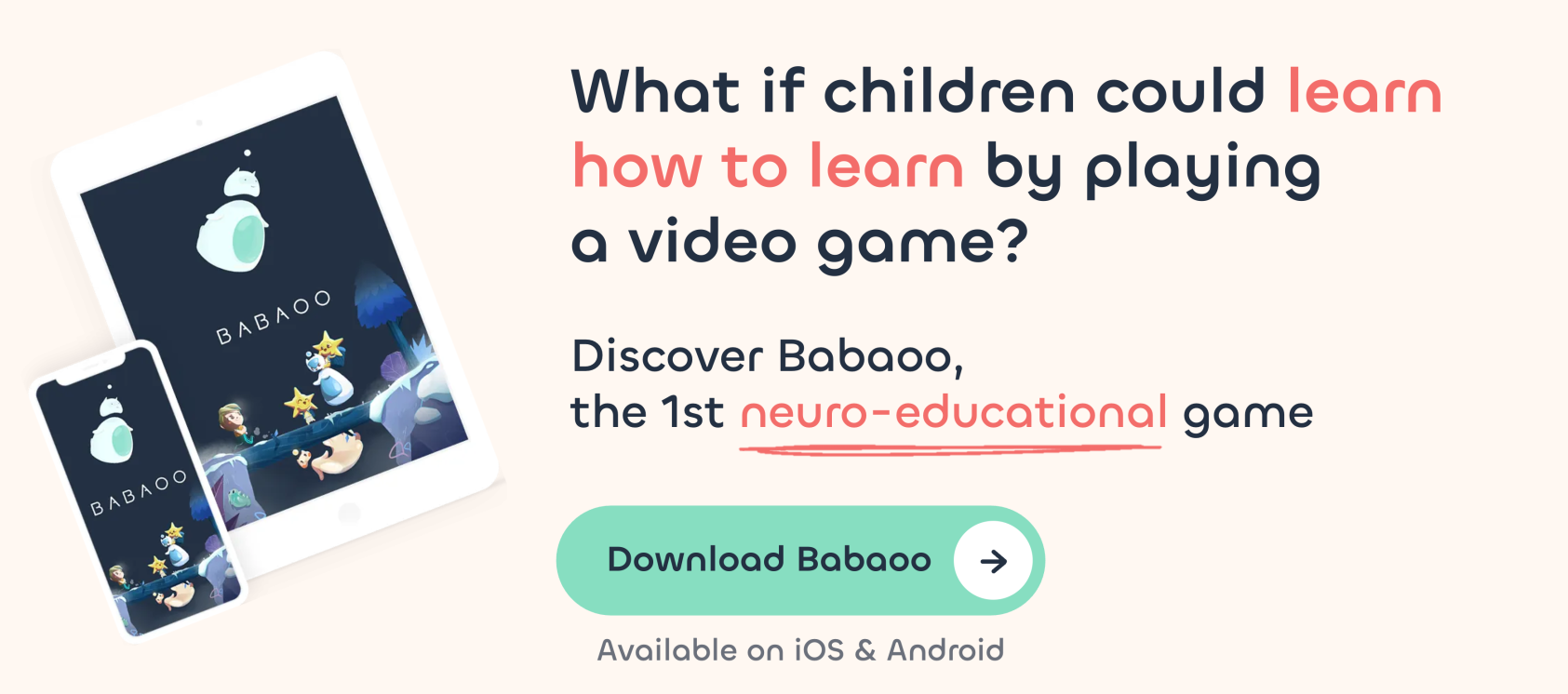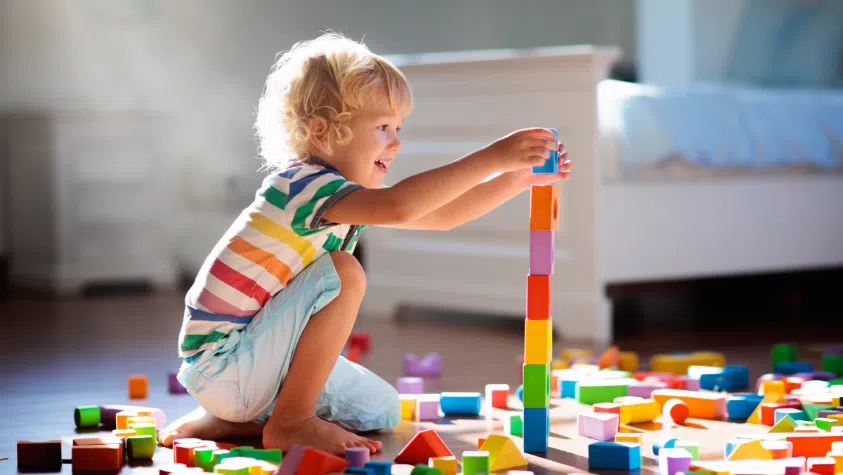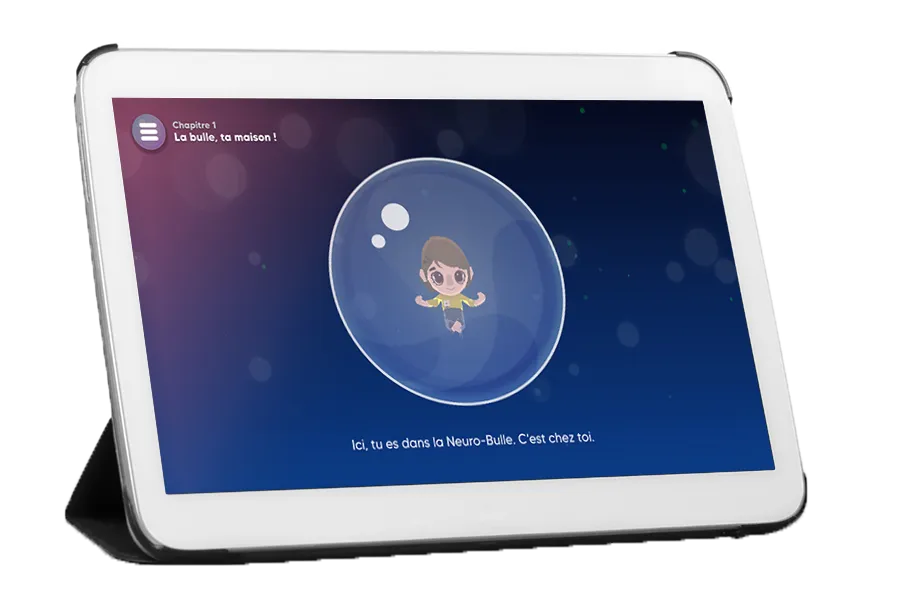As a parent, it’s great to see your child having fun, bursting out laughing and enjoying moments of pure carefree fun. Playing football with friends, painting a masterpiece, playing a board game, building a tree house in the garden… When it comes to fun, there are so many possibilities!
And what if educational games had the ability to combine fun and development? Yes, but… as long as you choose them carefully! The instructions and ages on board game boxes provide some answers, of course. But what do the neuroscientists have to say? 🤓
An educational game… What is it?
Now there’s a funny association of words! Is it first and foremost a game, with a light educational touch? Or is it an educational tool disguised as entertainment?
In neuroeducation, an educational game is defined as a playful activity designed to impart knowledge and values, while developing skills by captivating the child’s interest. Its essence lies in the harmonious symbiosis between the pleasure of playing and learning. After all, we might as well combine business with pleasure, right?
Gaming is serious business!
From a neuroscientific point of view, educational games stimulate the areas of the brain involved in memorising, thinking, reasoning and decision-making, among other things. By playing, children activate a number of neural networks that help to anchor information. But that’s not all!
The educational game offers an interactive experience that allows children to experiment, try, fail and then succeed. This trial-and-error learning dynamic builds resilience, creativity and problem-solving skills. 📈
Far from being a simple distraction or a roundabout way of teaching, educational play is therefore a powerful tool for growth. It marries children’s natural development with the richness of a well-thought-out education, rooted in an understanding of our brain mechanisms… Quite a programme! 🧠
Play at the service of children’s cognitive development
Between pre-school and school age, an impressive metamorphosis takes place in the child’s brain. Often considered by neuroscientists to be the ‘golden age’ of cognitive development, this phase is characterised by rapid and significant growth in several key areas of cognition. 💫
Your loulou-tte evolves a little more every day, learning to see the world from different angles and moving from concrete logic to more abstract thinking. This phase is also marked by a maturing of socio-emotional skills, where the child learns to understand their own emotions, as well as those of others, to cooperate and to resolve conflicts.
In this context of intense cognitive development, play plays a predominant role and acts as a real lever for development. While a treasure hunt in the garden may seem trivial, it actually improves children’s observation and deduction skills, while strengthening their sense of collaboration. Similarly, a game of Stratego tests their strategy, patience and ability to anticipate their opponents’ moves. ♟
The choice of educational games: a question of age?
We often hear that chronological age is the key benchmark for choosing a suitable educational game for a child. Although the recommended age on a game box is not just a simple safety guideline but also reflects the complexity of the game, the attention span required and the type of skills it seeks to develop, what really counts is the child’s stage of development. 🔎
In fact, the ideal game is one that takes into account the child’s zone of proximal development. If it’s too complex, the child is likely to give up. Conversely, if it’s too easy, it will lack challenge and the little player will lose interest as soon as they start playing it.
- For the youngest children, who have not yet acquired the ability to read or write, favour sensory games. At this stage, sensoriality is essential to enable them to grasp, understand and interact with the world around them: sensory trays, sound and tactile books, olfactory games… 🐣
- As they get older, your toddlers will happily turn to games involving construction, assembly, exploration and fine psychomotor skills: Duplo, wooden blocks, puzzles, stringing beads… 🧩
- Later on, you’ll make way for board games that introduce rules and encourage social connection, as well as games focused on managing emotions: Monopoly, Cluedo, Pictionary… 🃏

Educational games: how to choose
As well as the child’s stage of development, there are other criteria that can help you choose suitable educational games to maximise the fun and educational potential of the activity:
- Active learning: opt for games through which your child becomes an actor in their own learning (this is the principle of active teaching), rather than a mere spectator. The interactive nature of games encourages them to take the initiative, test strategies and reflect on their impact.
- Tries and errors: favour educational games that value learning through practice and experimentation. Your child should be free to develop his own strategies, to test them… and accept that he may sometimes make a mistake. In addition to this, these situations will enable him to work on frustration management 😉
- Valuing failure: a good educational game transforms failure into a springboard, a new opportunity to learn and improve.
- Adaptability: games that require constant adjustments and reward mental flexibility prepare the child to face new challenges with greater confidence and serenity.
- Social-emotional development: ensure that play offers opportunities for interaction to foster your child’s emotional and social development, including:
- His empathy: group games, in particular, can help him put himself in other people’s shoes and feel their emotions.
- His communication: group games offer moments for debate, discussion and collaboration, sharpening his communication skills.
- His emotional regulation: when experienced to the full, you know how much passion a game stirs. From the disappointment of an ineffective strategy to the exaltation of a deserved victory: favour educational games that elicit a varied range of emotions. In this way, your child will learn to express and manage their feelings appropriately.
Educational games: an unsuspected variety
As a parent, the image that comes most naturally to mind when we think of educational games is probably that of the colourful boxes that populate the shelves of our cherubs’ favourite toy shops. But the world of games is much richer and more varied than it seems…
The infinite playground of everyday life
Learning through play isn’t limited to boxes and boards. The garden and kitchen, too, can be transformed into learning spaces.
A game of hide-and-seek in the open air, for example, sharpens insight and patience. Similarly, making pancakes as a family is not just a gourmet experience. It develops creativity, fine coordination, team spirit and planning. 😋
Boredom: a catalyst for creativity
If you sometimes feel guilty because you’ve left your little protégé unoccupied, think again! It’s often in these moments of calm and boredom that the creative spark ignites. And that’s how a quiet room can become the cradle of new adventures and wonderful stories!
Allowing space for boredom means giving the imagination the freedom to express itself. 💡
Reinventing and hijacking
You don’t need to offer the latest “trendy” game to stimulate your child. Can’t remember the rules of UNO? Whether he decides to sort them by colour or by family, let your child imagine new rules. And, who knows, even a set of saucepans and two wooden spoons might give him some ideas… 🥁
The Babaoo recap
Educational play is much more than just a pastime for our children: it catalyses their development, helping them to grow, think and understand the world around them. Balancing fun and learning, it stimulates and strengthens their cognitive, emotional and social skills.
Beyond the boxes and the rules, it is the very essence of the game, its intrinsic educational dimension, that gives it its full value. The challenge is therefore to choose games that are suited to each child’s development, to value spontaneous creativity, and above all to recognise that every moment of play hides within it a precious learning opportunity. 🎲





